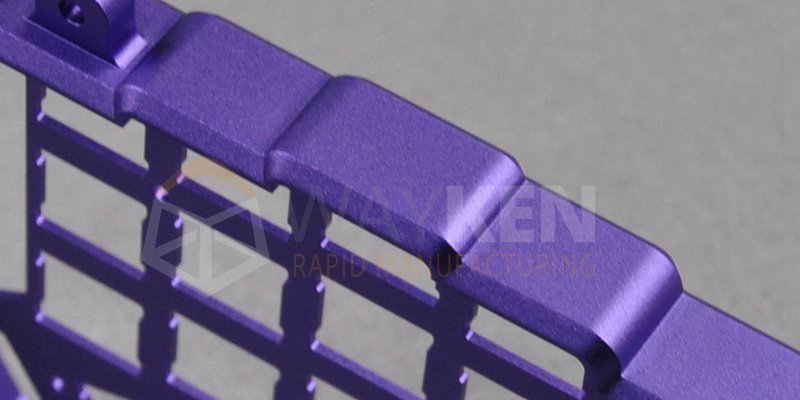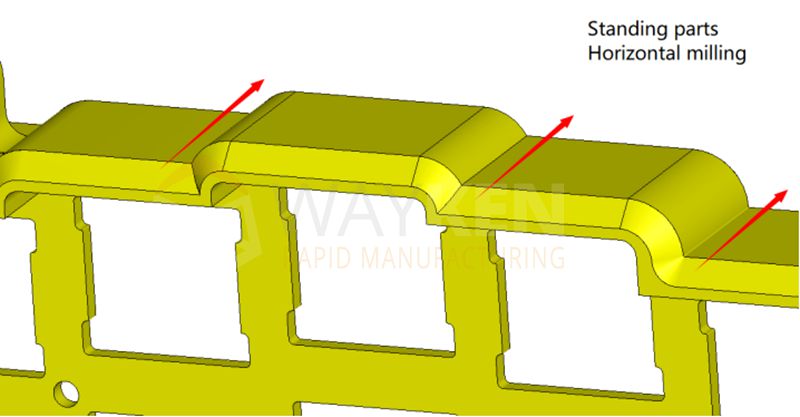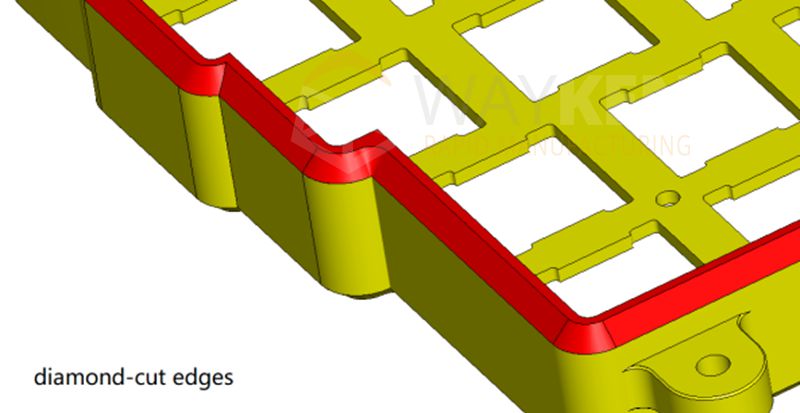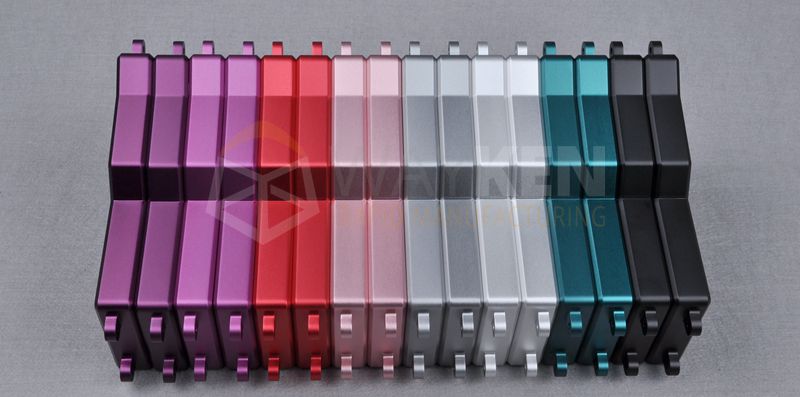Customized Aluminum Keyboards with Different Anodized Colors
From prototyping to low-volume manufacturing, WayKen helps Keven achieve custom keyboard development from design to reality.
At a Glance of the Project
| Information | |
|---|---|
| Industry | Consumer Electronics |
| Product | Custom Keyboards |
| Challenges | Consistent surface contours and aesthetics, Anodizing with different colors |
| Technology | CNC milling |
| Material | AL6063 |
| Surface finish | Anodizing |
| Quantity | 538 Sets |
| Lead Time | 30 Business days |
About Customer: Freelance IT Engineer
Keven is a young and passionate IT engineer from Hong Kong. He is driven by a pursuit of challenging software development and has a strong interest in related hardware. This curiosity has led him try to independent development. Interestingly, the initial inspiration came from his frequently used tool – keyboards. As an essential part of his job, the keyboard inspired him to explore and design.
Innovative Product: Custom one-handed Keyboard
This design is a privately customized one-handed keyboard. As we know, the usual keyboards are relatively complex to operate due to their multiple keys, and extended coding work can also put a strain on the hand. To address these issues, Keven developed open-source code tailored to their work needs, reducing the number of keys, optimizing the workflow, and alleviating hand strain.
Additionally, the custom one-handed keyboard provides ample mobility space, allowing IT engineers to enjoy quick and flexible operations. After sharing his idea and design with friends from the IT industry, Keven received significant support.

Turn Your Ideas into Reality: WayKen Always Offers Help
Once the design was finalized, it was time to turn it into reality. That’s when Keven reached out to WayKen, a rapid prototyping and manufacturing company, offering a one-stop machining service from prototyping to low-volume manufacturing. Through online effective communication and face-to-face meetings, We have in-depth discussions about the project. Finally, Keven decided to hand his project to WayKen for production.
Requirements for Custom Machined Keyboards
During Keven’s visit to our factory, we learned more about his machining requirements for this project. As these custom keyboards were Keven’s first independent design project, he wanted to achieve the best possible appearance, which meant that the surface finish was highly demanding.
The second requirement was to maintain the product’s contours. Typically, in order to save processing time and cost, some sharp corners are rounded off without affecting assembly. However, such treatment is not allowed in machining the keyboards, so we need to ensure the requirement is met.
WayKen's Machining Solutions for Custom Keyboards
Material Selection
Before machining, choosing the right material was very important. The aluminum trend sparked by Apple influenced many product designs and developments. Thin and lightweight aluminum 6061 with a metallic texture captured Keven’s attention and became his preferred choice. However, 6061 aluminum could retain grain and leave anodization spots on the final keyboard part’s surface. So WayKen suggested the more suitable option of aluminum 6063, which was anodized without spots and had a better appearance.
Processing Keypoints
High-quality appearance was the key to the machined keyboards. After discussing with Keven, there were several points that needed our attention, such as the product’s contours, the round diamond edges, and the deformation controlling the middle.

1. Maintaining Surface Contours
In order to save machining time and costs, parts were generally flattened for machining, which would leave 1mm radii at the sharp corners. However, that wouldn’t meet the product’s requirements. To address this issue, WayKen made the keyboard parts vertically placed and machined by a flat milling cutter based on its structure. To hold the part securely, we also customized fixtures and vacuum suckers for production.

2. Machining Diamond Edges
Under the observation of the keyboard design, we could notice the diamond edges around the keyboard, which enhanced aesthetics and design appeal. However, if the two sides of the part were machined separately, it would result in uneven lines and increased machining time and costs. To address this concern, WayKen created a customized tool to achieve uniformity in just one process.
3. Controlling Deformation
There’s one more thing to keep in mind, the deformation during machining needed to be controlled as much as possible. Otherwise, there would lead to assembly issues, due to the lack of support structure in the middle of the custom keyboards. So, unlike other fixtures used for the machining of parts, steel was used for this keyboard project as a secondary support.
Surface Treatment
In this project, post-processing was the key to getting perfect results with custom machined keyboards. Anodizing, the commonly used aluminum treatment, was applied to the item. In order to obtain an appealing appearance, the machined keyboard parts were sandblasted to polish tool marks.
Keven selected 120 grit in the sandblasted finish offered by WayKen, which indirectly raised the requirement for fine machining. In addition, anodizing allowed custom keyboards to get more colors. Through skilled anodizing technology, WayKen produced keyboard parts in various colors and excellent appeal effects. At the same time, we also tested the assembly and all the parts fit together.

Future Plan
Keven highly praised WayKen for effective communication, production management, and product delivery. He also impressed our management from prototyping to low-volume production. Based on satisfaction with the custom keyboards, Keven said, “My friends really like this product, and I am confident in future designs and developments.”
If you also want to bring your design to life and require a one-stop machining service from prototyping to low-volume production, please contact WayKen to start your project!





